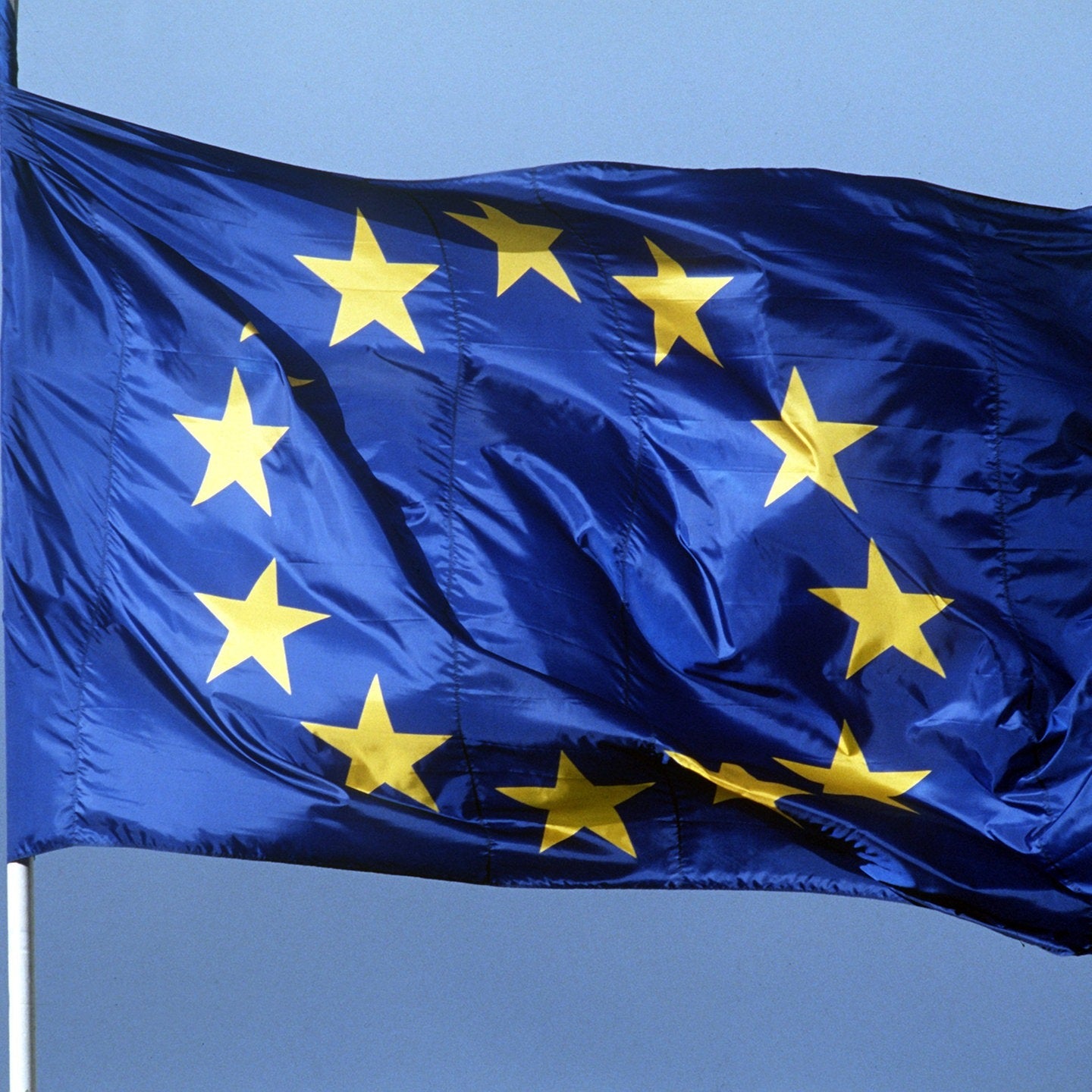
Alarmstufe Rot für dein Girokonto: Sichere dein Geld außerhalb der EU – bevor es zu spät ist
Die Zeichen stehen auf Sturm. Europas Banken geraten zunehmend ins Wanken, die Staatsschulden explodieren – und das Vertrauen in den Euro bröckelt. Wer heute noch sein gesamtes Vermögen in der EU hält, spielt mit dem Feuer.
In diesem Beitrag erfährst du, warum ein Bankkonto außerhalb der EU kein Luxus, sondern eine notwendige Maßnahme zum Vermögensschutz ist – und was passieren kann, wenn du nicht rechtzeitig handelst.
1. Europas Banken: Ein instabiles Kartenhaus in der Zinsfalle
Was nach außen wie ein stabiles Finanzsystem aussieht, ist in Wahrheit ein fragiles Konstrukt auf wackligen Säulen. Europas Banken kämpfen nicht mehr nur mit den Spätfolgen der Niedrigzinspolitik – sie geraten zunehmend unter Druck durch die neue Realität: steigende Zinsen, wachsende Risiken und ein brüchiges Vertrauen.
Zinswende als Belastungsschock
Die abrupte Zinswende der EZB traf viele Banken unvorbereitet. Was für Sparer endlich wieder nach Rendite klingt, bringt für Banken gefährliche Nebenwirkungen: Verluste durch fallende Anleihekurse, Refinanzierungsprobleme, neue Eigenkapitallücken. Erste Bankenpleiten in den USA (z. B. Silicon Valley Bank) zeigen, wie instabil das System reagiert. Europa ist nicht besser aufgestellt.
Marode Bilanzen und Altlasten
Besonders Banken in Südeuropa schleppen hohe Bestände an notleidenden Krediten mit sich. Sie wurden über Jahre durch billiges Geld am Leben gehalten – doch jetzt fallen diese Schwächen zunehmend auf.
Gefährliche Staatsabhängigkeit
Viele Banken halten große Mengen an Staatsanleihen ihrer Heimatländer. Bei steigenden Zinsen verlieren diese Papiere an Wert – und damit auch die Stabilität der Bankbilanzen. Gerät ein Staat ins Wanken, wankt die Bank mit. Ein Teufelskreis, der 2025 brandgefährlich ist.
Digitaler Rückstand
Während Banken in Asien und Nordamerika digital aufrüsten, bleiben europäische Banken vielfach hinterher – technologisch, organisatorisch und kulturell. Die Kombination aus Innovationsstau und Regulierungsdruck lässt kaum Spielraum für echte Transformation.
Fazit
Die Zinserhöhungen haben nicht für Stabilität gesorgt – sondern ein labiles System erschüttert. Wer heute noch allein auf EU-Banken vertraut, nimmt systemische Risiken in Kauf.
2. Staatsverschuldung in der EU: Die tickende Zeitbombe
Die Schuldenberge der EU-Staaten wachsen seit Jahren – durch Corona, Ukrainekrieg, Energiekrise, Konjunkturprogramme und Umgehungshaushalte. Die Zahlen sprechen für sich:
Italien: über 140 % des BIP
Frankreich: über 110 %
Deutschland: offiziell ca. 65 %, real aber deutlich höher durch Sondervermögen und Haushalts-Tricks
Die EZB steckt in einem Dilemma: Hebt sie die Zinsen zu stark an, geraten Staaten in die Schuldenfalle. Senkt sie sie, entgleist die Inflation. Dieses Spannungsfeld ist brandgefährlich – und das Vertrauen in den Euro gerät zunehmend unter Druck.
3. Die Lösung: Ein Bankkonto außerhalb der EU
Ein Bankkonto außerhalb der EU ist keine Steuerflucht, sondern strategische Vermögenssicherung. Es geht darum, im Ernstfall Zugriff, Kontrolle und Sicherheit zu behalten – wenn das EU-System versagt.
Schutz vor staatlichen Zwangsmaßnahmen
Zypern 2013 hat es vorgemacht: Konten eingefroren, Guthaben zwangsweise umverteilt. Auch in anderen EU-Staaten sind Zwangsanleihen, Vermögensabgaben oder Einlagenbesteuerung realistische Szenarien.
Politische Diversifikation
Mit einem Konto in einem stabilen Nicht-EU-Land entkoppelst du dein Vermögen von Brüssel, Berlin und der EZB. Das reduziert dein politisches Risiko erheblich.
Stabile Währungen, sicherere Jurisdiktionen
Schweizer Franken, Norwegische Krone, Singapur-Dollar – all diese Währungen gelten als krisenresistent. Gleichzeitig bieten Länder wie die Schweiz oder Singapur rechtliche Stabilität und hohe Diskretion.
Bessere Verfügbarkeit im Krisenfall
Wenn in der EU Kapitalverkehrskontrollen eingeführt werden (Überweisungslimits, Auslandsüberweisungsverbote, Bargeldbeschränkungen), bleibst du mit einem Auslandskonto handlungsfähig.
Neu: Dezentrales Offshore-IBAN-Konto als Alternative
Neben klassischen Auslandskonten in Ländern wie der Schweiz oder Singapur eröffnet sich dank technologischer Innovationen eine weitere Option: dezentrale, blockchainbasierte IBAN-Konten, die vollständig außerhalb traditioneller Bankensysteme funktionieren – ohne Kontrolle durch Banken oder staatliche Institutionen.
Diese modernen Web3-Lösungen bieten:
-
Vollwertige IBAN-Konten, nutzbar für internationale Zahlungen und Gehaltseingänge
-
Höchste Sicherheit durch 512-Bit-Verschlüsselung und dezentrale Infrastruktur
-
Kostenfreie Transaktionen, keine Gebühren für Überweisungen, Währungsumtausch oder Kontoführung
-
Kombinierte Nutzung von Fiat und Kryptowährungen – mit direktem Tausch in Millisekunden
-
Eigene Wallet und Karte – Zahlungen weltweit, auch offline, ohne Zwischeninstanzen
-
Absolute Kontrolle über deine Daten und Identität – du bestimmst, wer was sieht
-
Unabhängigkeit von geopolitischen Risiken und klassischen Bankrestriktionen
Solche Konten sind besonders für Menschen attraktiv, die hohe Flexibilität, globale Zugriffsmöglichkeiten und maximale Privatsphäre schätzen – und gleichzeitig nicht auf Rechtssicherheit und einfache Nutzung verzichten wollen.
Wichtig: Diese Technologie ist neu, dynamisch und noch nicht flächendeckend reguliert. Eine sorgfältige Prüfung des Anbieters, der Infrastruktur und der rechtlichen Rahmenbedingungen wird dringend empfohlen – dennoch kann diese Option eine zukunftsfähige Lösung zur Vermögensdiversifikation darstellen.
4. Was kann dir passieren, wenn du nur EU-Konten nutzt?
Diese Szenarien sind keine Science-Fiction – sie sind gesetzlich möglich oder historisch bereits passiert:
Bail-In statt Bail-Out
Seit 2016 dürfen Banken Kunden mit Einlagen über 100.000 € zur Rettung heranziehen. Du haftest mit deinem Guthaben – ob du willst oder nicht.
Kapitalverkehrskontrollen
Regierungen können jederzeit Transfers ins Ausland stoppen, Abhebungen begrenzen oder Konten blockieren – mit einem einfachen Beschluss.
Zwangsanleihen oder Vermögenssteuern
Diskussionen über „einmalige Solidaritätsabgaben“ oder Sondersteuern auf Vermögen sind längst in vollem Gange. Dein Konto in der EU ist der einfachste Zugriffspunkt.
Inflation und Währungsrisiko
Der Euro verliert an Kaufkraft – das sehen wir bereits. Sollte es zu einem Auseinanderbrechen der Eurozone oder einer Währungsreform kommen, kann dein Guthaben zwangsweise abgewertet oder umgerechnet werden.
5. Wo du dein Geld alternativ parken kannst
Achte bei der Wahl eines Auslandskontos auf Länder mit:
-
politischer und wirtschaftlicher Stabilität
-
starker Währung
-
stabiler Gesetzgebung
-
hoher Bankensicherheit
Empfohlene Länder (2025):
-
Schweiz – politisch neutral, rechtssicher, starke Banken
-
Singapur – einer der weltweit führenden Finanzplätze
-
Norwegen – außerhalb der EU, solide Staatsfinanzen
-
Kanada – stabil, transparent, verlässliche Rechtssicherheit
Fazit: Jetzt handeln – bevor es andere für dich tun
Die Risiken sind real – nicht nur theoretisch. Europas Finanzsystem steht unter Stress wie seit Jahrzehnten nicht mehr. Wer heute noch allein auf EU-Konten vertraut, ignoriert die Warnzeichen.
Ein Bankkonto außerhalb der EU ist kein radikaler Schritt – es ist ein kluger, ruhiger und vernünftiger Schritt zur Absicherung deines Vermögens.
Sichere dir deine Handlungsfreiheit – solange du noch kannst.








